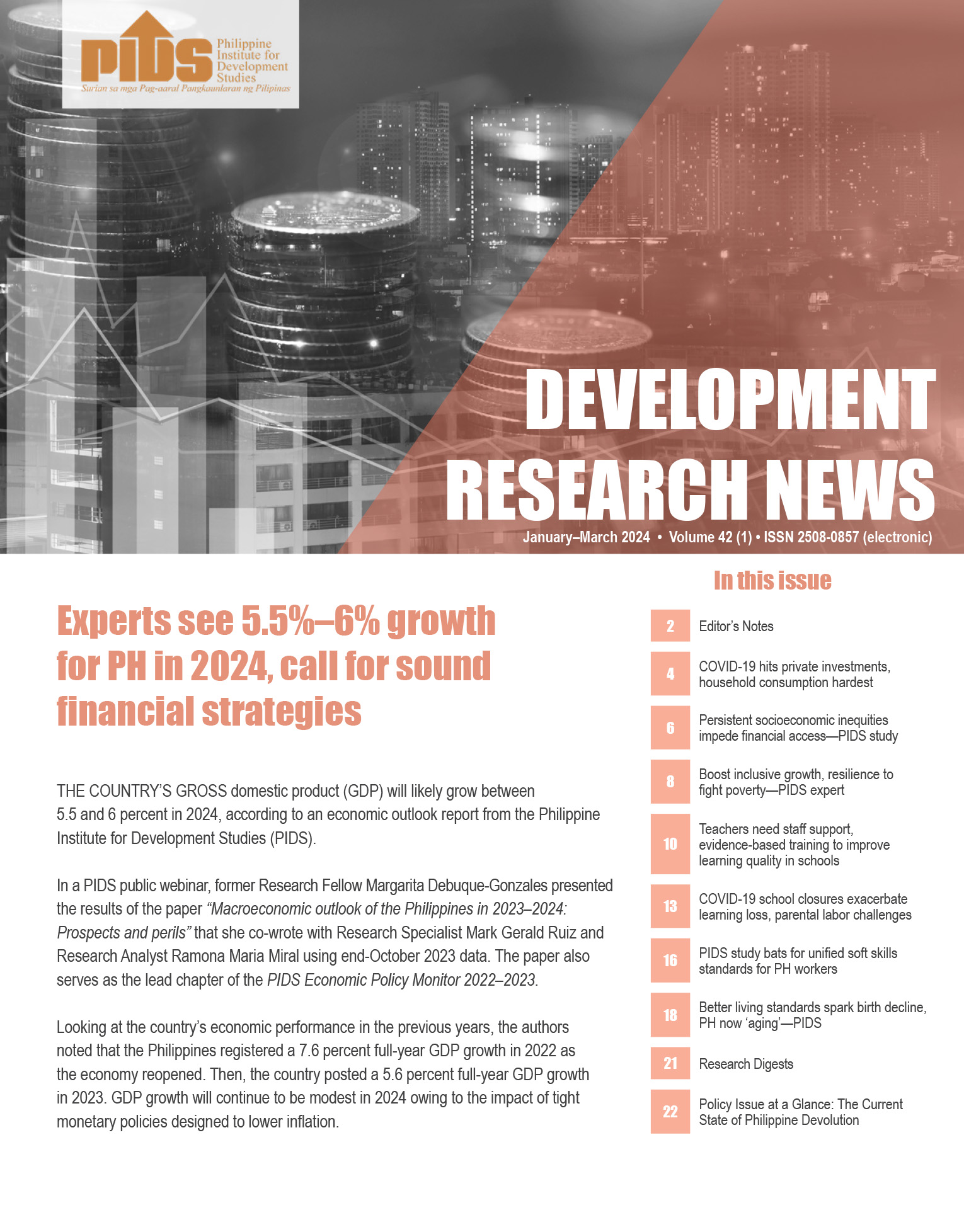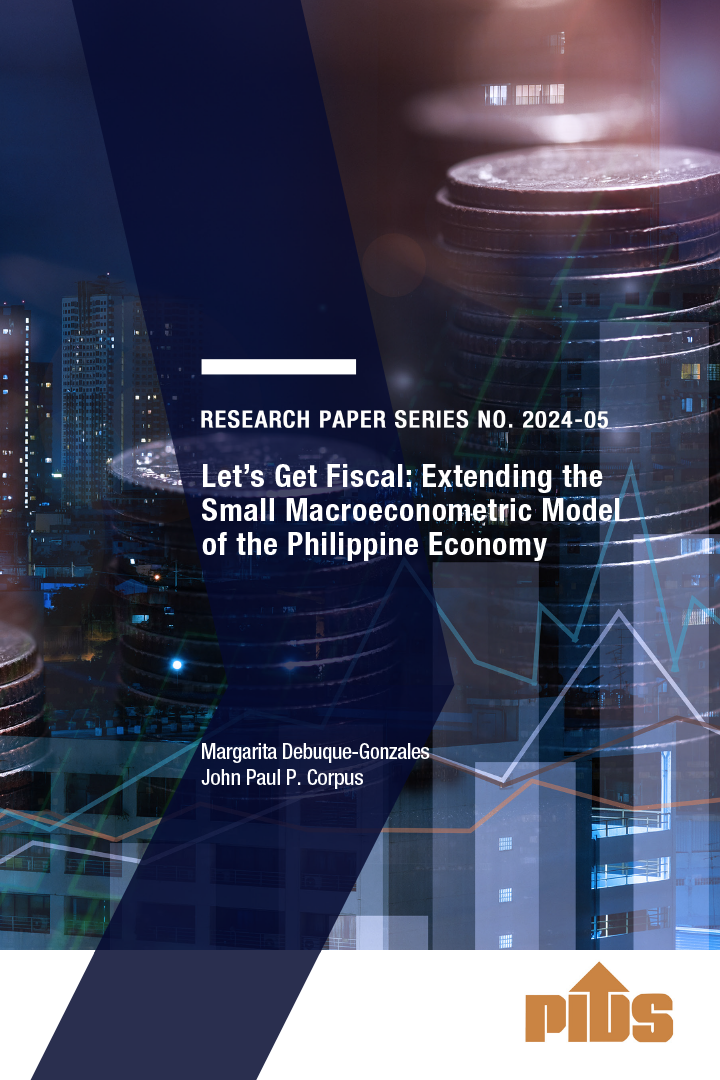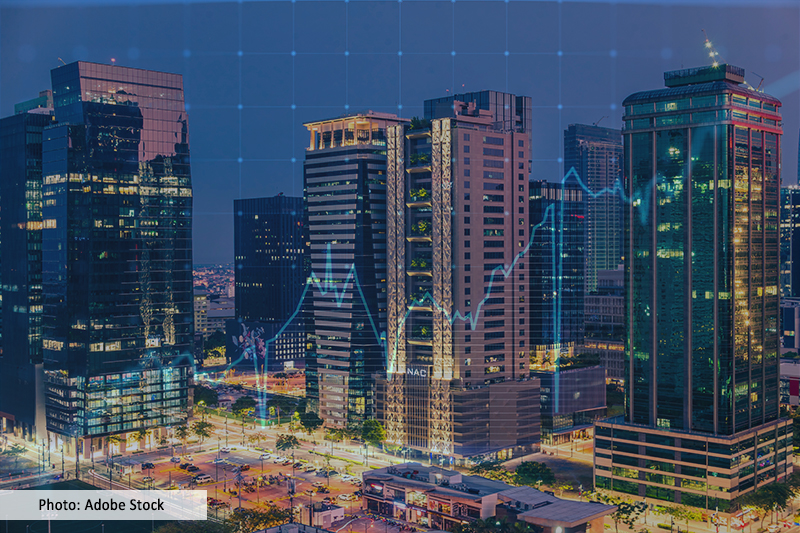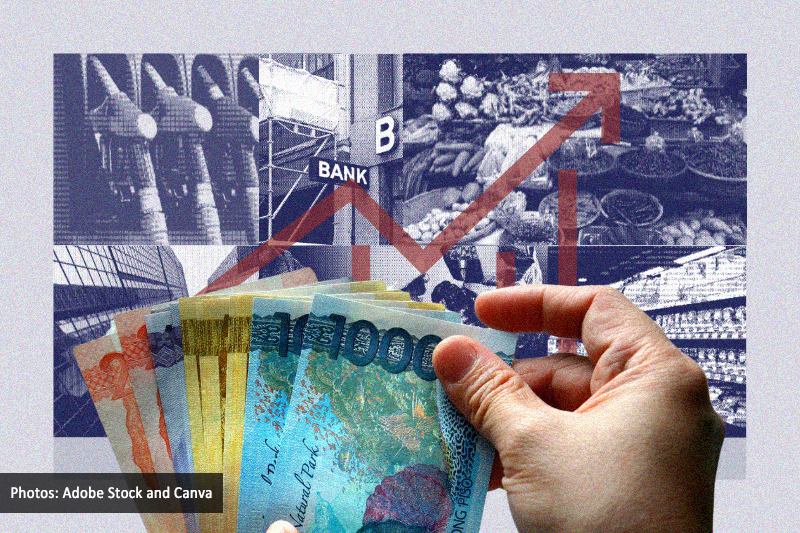The Philippines has a very promising economic future but the country needs to improve on its governance, competitiveness, and fiscal management.
In a seminar-forum co-organized by the Philippine Institute for Development Studies (PIDS), the International Monetary Fund (IMF), and Bangko Sentral ng Pilipinas (BSP), leaders from these institutions shared their views on the prospects of the Philippines in achieving inclusive economic growth.
`The Philippines has large favorable factors because it has macroeconomic stability, abundant natural resources, and a large working-age population. However, it needs to improve its governance, competitiveness, and attractiveness to investments,` Dr. Anoop Singh, Director of the Asia and Pacific Department of the IMF, said during the seminarforum which focused on the theme `The Quest For Inclusive Economic Growth`.
According to Singh, growth in the Philippines does not show much robustness as compared to other Asian countries. But he is optimistic with the World Economic Outlook`s projected growth of over six percent for the Philippines this year.
`What needs to be done to raise growth is to have more investments and higher productivity,` said Singh. The country`s weak investment climate can be strengthened by improving health and education outcomes and labor market efficiency, and creating strong institutions.
Singh also mentioned that government revenue in the Philippines is low compared to other Asian countries. `There is a need for higher government revenue to raise public investment,` he said. He recommended raising revenue by increasing the country`s tax base. `Get rid of exemptions that restrict the tax base by increasing and improving tax administration.`
Accentuating the importance of foreign direct investments (FDI) to the economy, Singh said FDI promotes competition which is needed for higher productivity. He then suggested that the country`s foreign ownership limits should be lessened, and its low ranking on ease of doing business index must be improved. According to the World Bank, the Philippines is in the 138th place on ease of doing business, clearly lagging far behind Malaysia which is at 12th place.
The IMF Director strongly supports the conditional cash transfer (CCT) program or the Pantawid Pamilyang Pilipino Program (4Ps) of the Philippine government. He said with optimism that it should be continued because CCT programs have significantly helped in decelerating economic inequalities in Latin America.
PIDS President Dr. Josef Yap, on the other hand, brought attention to the country`s recent economic performance. `The GDP growth rate had jumped to 6.6 percent last year from 3.9 percent in 2011,` Yap said. This is the highest growth rate in the ASEAN region. Yap disclosed that this was largely driven by the growth in public and private construction.
In terms of gross domestic investment rate, Yap echoed Sigh`s earlier comment that the country has a low investment rate and this fact becomes more glaring when compared to its neighboring countries. `Indonesia has already exceeded its gross domestic rate of 31.1 percent in 1994 with 33 percent in 2011,` Yap said. `On the other hand, the Philippines did not even reach 25 percent since 1994,` he added.
According to the president of the country`s foremost think tank, conglomerates are reluctant to invest in the country because of their captured market. Meanwhile, competitive sectors are also reluctant to invest because the costs they received from the conglomerates are also high (power, shipping, telecommunication costs, etc.).
Yap suggested that the government should play a big role in addressing the coordination problem among the different sectors of the economy as this severely constrains investments into the country.
In a seminar-forum co-organized by the Philippine Institute for Development Studies (PIDS), the International Monetary Fund (IMF), and Bangko Sentral ng Pilipinas (BSP), leaders from these institutions shared their views on the prospects of the Philippines in achieving inclusive economic growth.
`The Philippines has large favorable factors because it has macroeconomic stability, abundant natural resources, and a large working-age population. However, it needs to improve its governance, competitiveness, and attractiveness to investments,` Dr. Anoop Singh, Director of the Asia and Pacific Department of the IMF, said during the seminarforum which focused on the theme `The Quest For Inclusive Economic Growth`.
According to Singh, growth in the Philippines does not show much robustness as compared to other Asian countries. But he is optimistic with the World Economic Outlook`s projected growth of over six percent for the Philippines this year.
`What needs to be done to raise growth is to have more investments and higher productivity,` said Singh. The country`s weak investment climate can be strengthened by improving health and education outcomes and labor market efficiency, and creating strong institutions.
Singh also mentioned that government revenue in the Philippines is low compared to other Asian countries. `There is a need for higher government revenue to raise public investment,` he said. He recommended raising revenue by increasing the country`s tax base. `Get rid of exemptions that restrict the tax base by increasing and improving tax administration.`
Accentuating the importance of foreign direct investments (FDI) to the economy, Singh said FDI promotes competition which is needed for higher productivity. He then suggested that the country`s foreign ownership limits should be lessened, and its low ranking on ease of doing business index must be improved. According to the World Bank, the Philippines is in the 138th place on ease of doing business, clearly lagging far behind Malaysia which is at 12th place.
The IMF Director strongly supports the conditional cash transfer (CCT) program or the Pantawid Pamilyang Pilipino Program (4Ps) of the Philippine government. He said with optimism that it should be continued because CCT programs have significantly helped in decelerating economic inequalities in Latin America.
PIDS President Dr. Josef Yap, on the other hand, brought attention to the country`s recent economic performance. `The GDP growth rate had jumped to 6.6 percent last year from 3.9 percent in 2011,` Yap said. This is the highest growth rate in the ASEAN region. Yap disclosed that this was largely driven by the growth in public and private construction.
In terms of gross domestic investment rate, Yap echoed Sigh`s earlier comment that the country has a low investment rate and this fact becomes more glaring when compared to its neighboring countries. `Indonesia has already exceeded its gross domestic rate of 31.1 percent in 1994 with 33 percent in 2011,` Yap said. `On the other hand, the Philippines did not even reach 25 percent since 1994,` he added.
According to the president of the country`s foremost think tank, conglomerates are reluctant to invest in the country because of their captured market. Meanwhile, competitive sectors are also reluctant to invest because the costs they received from the conglomerates are also high (power, shipping, telecommunication costs, etc.).
Yap suggested that the government should play a big role in addressing the coordination problem among the different sectors of the economy as this severely constrains investments into the country.












